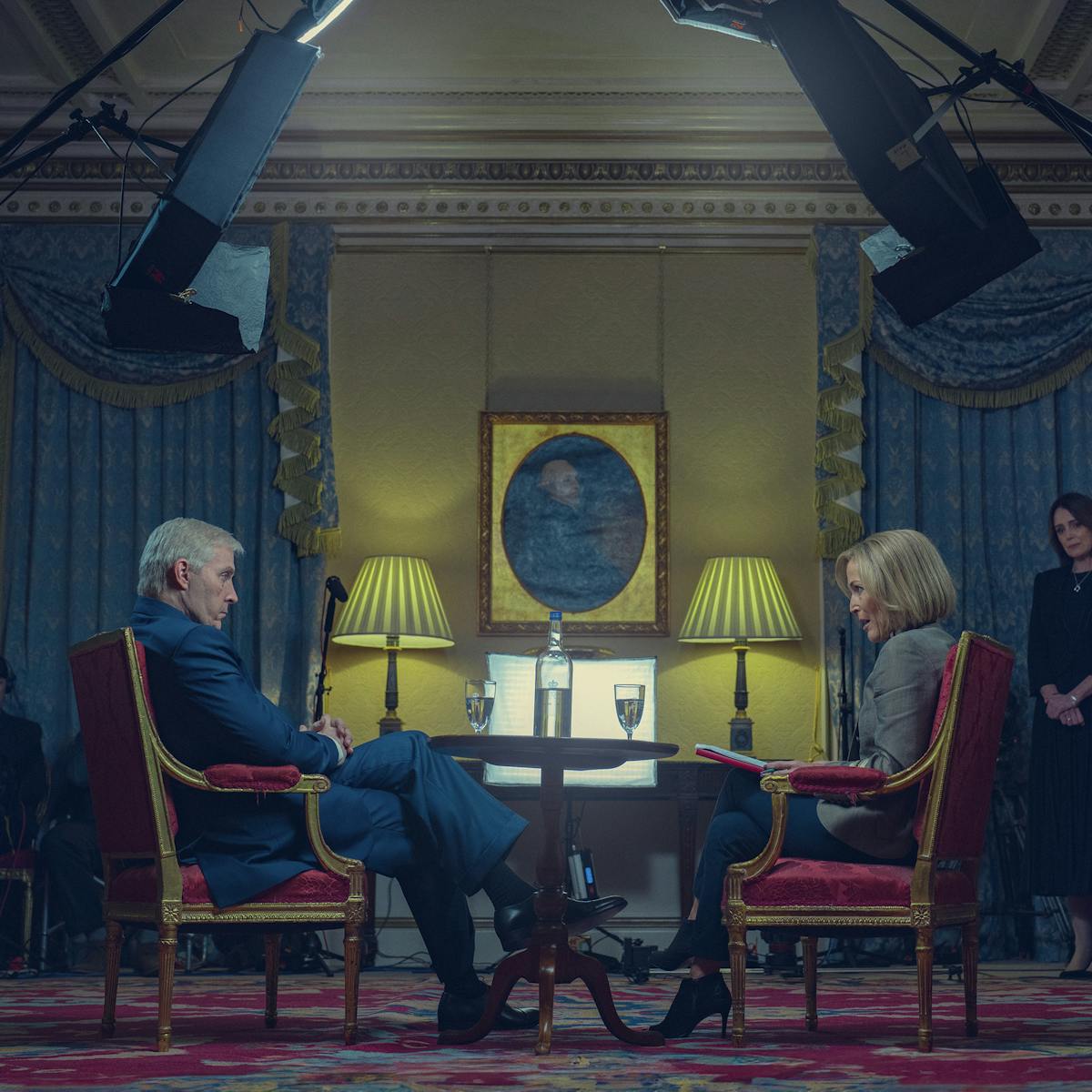Depending on who you ask, the character of Tom Ripley is a Machiavellian criminal, a mastermind of deception, or a hopelessly deluded dreamer. Patricia Highsmith’s quintet of novels centering on the tortured, talented con artist have invited several cinematic interpretations, each with a different take on his slippery essence. Some actors might hesitate to step into the protagonist’s dubiously-acquired Ferragamo loafers, but Andrew Scott, star of the new limited series Ripley, had no such qualms. “Since I’ve been associated with the role, people say ‘Oh my god, that character,’” recalls the Irish actor, known for his subtle, precisely observed performances as the magnetic Priest in Fleabag and Adam, a lonely writer batting grief in All of Us Strangers. “People have a lot of preconceptions about Tom Ripley. It’s my job in some ways to ignore all that and create our own particular version of it.”
Anchored by Scott’s mercurial performance, Ripley is a finely drawn character study of one of the most beguiling creations of twentieth-century fiction. Helmed by DGA Award-winning director and Academy Award-winning writer Steven Zaillian, the gripping psychological thriller unspools over eight episodes shot in elegant black and white by Academy Award winner Robert Elswit. From a rat-infested flophouse in 60s Manhattan to a dolce vita gone sour in Italy, Ripley’s travels — and travails — come to life in noir at its most luxurious and complex. Its cinematographic lushness is haunted by ever-present threats of deception and violence and shot through with sly wit. “It’s just the way I write, intertwining drama and in this case, suspense, with humor, because that’s what life is like,” says Zaillian. “I’m always after what’s real in behavior.”

Tom Ripley (Andrew Scott)
When we first meet Ripley, he is scraping together a living in New York’s underbelly when an offer arrives that few in his position would refuse. A shipbuilding magnate practically hands Ripley a blank check to retrieve his wayward son Dickie Greenleaf (Johnny Flynn) from an extended vacation in Italy. Yet upon arrival, the mission takes on a complex and sinister edge as Ripley becomes dangerously infatuated with Dickie’s haute bohemian lifestyle and carefree cool. He grows possessive and jealous, raising the suspicions of his partner Marge Sherwood, played by Dakota Fanning. “Marge susses him out pretty quickly,” notes Fanning. “A lot of the other characters think that they’re playing Tom — and Tom is fully playing them.”
Zaillian sought out Fanning after watching her “expressive and eerie” turn as the Manson cult member Squeaky Fromme in Quentin Tarantino’s Once Upon a Time . . . in Hollywood: “I thought, This is someone who can go toe to toe with Tom Ripley, who is too smart to be conned, who can threaten his schemes.”
To find the perfect setting for Dickie and Marge’s Italian idyll, Zaillian and production designer David Gropman set about the rather enviable task of location scouting on the Amalfi coast. Amid the area’s swishy modern-day hotels and luxury boutiques, they discovered Atrani, a quaint village that seemed frozen in time with its lemon tree-lined streets, tenth-century church, and stunning vistas of the Tyrrhenian Sea. The costume department meticulously recreated the period’s fashions to outfit a supporting cast that brings richness to Atrani’s pensiones and vibrant life to its bustling Roman piazzas. Filming happened to coincide with a lull in vacationers, adding to the authentic feel. “This was during COVID, so there were no tourists,” notes Zaillian. “It made it feel all the more like we’d gone back in time.”

Marge Sherwood (Dakota Fanning) and Dickie Greenleaf (Johnny Flynn)
Despite its fidelity to the 60s setting, there’s a sense that Ripley is meeting the moment, reentering popular consciousness at a time of cultural fascination with real-life scammers such as Anna Delvey and Elizabeth Holmes. Even so, Scott bristles at the idea that the series’ protagonist is a mere grifter. “I think he’s very charming and not in a manipulative way,” says Scott, who rocketed to stardom playing a true literary villain, James Moriarty in the BBC’s Sherlock. “When [Ripley] comes to Italy and he’s exposed to all this beautiful art and landscape and beauty and food, he adores it. But the people that he’s with I’m not sure have the same appreciation or humility about that stuff that he does. So in a way, he’s very like us.”
Scott adds that Ripley’s unsavory exploits are motivated by fear, specifically the FOMO-like certainty that everyone else is having a fabulous time without him. “He’s a dark character and does bad things,” says Scott. “To me, what it’s about is feeling like you are not invited to the party. It’s about feeling like you’re ‘other.’”

Tom Ripley (Andrew Scott)
It’s hard to blame Ripley for longing for what he can’t have. One early scene in New York sees him gazing admiringly into the window of a refined boutique while on the way home from a dingy dive bar, transfixed — taunted — by an upper-crust lifestyle that is inaccessible to him no matter the cash in his wallet. You can’t merely buy your way into the echelons of high society, or acquire the laissez-faire attitude to wealth that comes with it: Dickie shrugs on his made-to-measure Italian suits with the same careless ease that a dock worker tosses on his overalls. “Essentially, Dickie doesn’t want to inherit the rich kid status,” says Flynn. “In his heart, he’s a bohemian artist-poet, and he’s getting to imagine he is that, living in this reclusive place in Italy.”
This nonchalantly rakish dreamer-gone-adrift casts a particular spell over Atrani’s newest arrival. “To my mind, it’s all about love,” says Scott of Ripley’s attraction to Dickie. “I think he loves Dickie. It’s not really specified as to what the nature of that love necessarily is from Tom’s point of view. Do I think that it’s in some way sexual? Possibly.” Ripley doesn’t know whether he wants to be Dickie, or wants to be with him.

Tom Ripley (Andrew Scott)
Scott is no stranger to getting into the bones of characters that subvert audience expectations. He recently scored an Olivier nomination for a tour-de-force turn in the West End’s Vanya, an audacious Chekhov adaptation in which Scott played every role. His Ripley is just as multidimensional, teasing out the humanity of a man who is certainly no hero, but is also too complex to quite be a love-to-hate-’em antihero. “I always think the great works of art are or should be about who we are and not who we should be,” says Scott. “I think we contain multitudes within us and all great art reflects that, that we’re both the light and the dark.”



